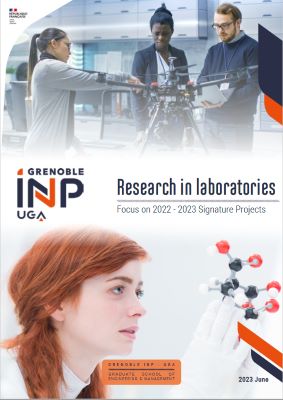 We are concerned about sustainable development, we understand the advantages of exercising regularly and eating well, etc. However, there is a world of difference between knowing and doing! This is where persuasive technologies come into play when being aware is no longer enough!
We are concerned about sustainable development, we understand the advantages of exercising regularly and eating well, etc. However, there is a world of difference between knowing and doing! This is where persuasive technologies come into play when being aware is no longer enough!Can technology make us better, drive away our bad habits and provide us with healthier ones? In other words, can it stimulate the double ideology-behaviour influence that is to say on the one hand allow us to change our behaviour to make it fit with our principles and on the other hand strengthen our ideologies through our actions? As we are all different, this technology cannot be generic. It must be suited to each person which means that an excellent understanding of the personal drivers of action is needed in order to obtain long-lasting behavioural change.
Gaëlle Calvary, an IT professor at Grenoble INP and researcher at the LIG has been investigating this research topic from the man-machine interaction perspective. She is involved in the Grenoble INP SmartEnergy development project. How can civic behaviour be sustainably maintained in human beings when information is no longer enough? This energy consumption-related question is addressed by Gaëlle Calvary who focuses on the methodological aspects of the engineering of these technologies: how can these “guardian angel” systems be designed and evaluated?
In conjunction with Christian Bastien, a psychology professor (cognitive ergonomy) at the Lorraine University, Gaëlle Calvary cofounded a multidisciplinary workgroup PISTIL (Persuasive Interaction for SusTainabILity) composed of researchers in different areas: Information Technology, Psychology, Ergonomy, Electrical Engineering, etc. to address the topic of persuasive technologies for sustainable development and in order to obtain a broader view. The goals are to build a French speaking community on the topic and to collectively draw up best practices and create common frameworks. These scopes of application are as vast as the human mind can imagine and centre on a better quality of life for all and for future generations!





